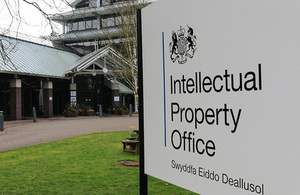New exceptions to copyright reflect digital age
Reforms to copyright law come into force bringing estimated benefits of at least £250 million to the UK economy over the next 10 years.

Reforms to copyright law come into force today (1 June 2014) bringing estimated benefits of at least £250 million to the UK economy over the next 10 years.
The reforms will give a number of sectors a legal framework fit for the digital age, removing the burden of unnecessary regulations and helping the UK better preserve and use copyright material.
Changes from today include the removal of copyright barriers to Text and Data Mining for non-commercial research. This important analytic technique helps the UK’s scientific and academic community to deliver new advances in medicine, technology and research. Other essential changes will help organisations from charities to museums and archives both use and protect their own material.
Intellectual Property Minister Lord Younger said:
These common sense reforms will update the UK’s copyright system for the digital age, and help to build and maintain public confidence and respect for copyright.
These changes bring an end to many instances where people carrying out minor, reasonable acts of copying could have found themselves on the wrong side of the law.
The text and data mining exception is a particularly important step forward for researchers in the UK and will ensure they have the tools that they need to maintain their competitive edge in an increasingly global marketplace.
The exceptions coming into force today will bring a range of benefits to a wide range of groups:
- disabled people and disability groups can now make accessible copies of copyright material (eg music, film, books) when no commercial alternative exists
- researchers will benefit from the introduction of the new text and data mining exception for non-commercial research, as well as the reforms to existing exceptions that will enable limited copying of all types of copyright works for non-commercial research and private study
- schools, colleges and universities can now use copyright material on interactive whiteboards and in presentations, and as long as they have a licence, they will not need to worry about accidentally infringing copyright
- libraries, archives and museums will now be better able to protect our cultural heritage and preserve their collections. The existing preservation exception has been expanded to cover all types of copyright work, and now applies to museums and galleries as well as libraries and archives. Removing the barriers to preservation will save cultural institutions up to £26 million per year
- public bodies can now publish online the material they hold for public inspection, reducing costs and administrative burden of having to issues paper copies or requiring people to come to their offices
The government is also committed to introducing exceptions for private copying and parody and quotation once they have been approved by Parliament.
Notes to editors
1.The regulations that have come into force today are:
- the Copyright and Rights in Performances (Disability) Regulations 2014
- the Copyright and Rights in Performances (Research, Education, Libraries and Archives) Regulations 2014
- the Copyright (Public Administration) Regulations 2014
2.The Intellectual Property Office has published a series of 8 targeted guides about what the changes mean for different sectors have also been published. The guides are for groups including teachers, researchers, librarians, disability groups, artists, museums and consumers, and explain what users can and cannot do with copyright material.
3.These reforms follow the Hargreaves Review of Intellectual Property and Growth, published in 2011 - Digital Opportunity: An Independent Review of IP and Growth
4.The government published a full response to its copyright consultation in December 2011 and responded in Modernising Copyright: A Modern, Robust and Flexible Framework in December 2012, outlining its broad plans for policy reform.
5.The government took the additional step of completing a technical review of draft Exceptions to Copyright regulations between June and September 2013. The full response to this technical review was published on 27 March 2014.
6.Explanatory notes to the regulations, as well as the government’s full response to the technical review, impact assessments and all supporting documentation are available via the changes to copyright law and guidance pages of the IPO website.
7.On 11 and 12 June 2014, the Intellectual Property Office and OHIM are hosting an IP Enforcement Summit. Delegates will discuss issues including IP in the online environment and the coordination, tools and techniques to tackle IP infringement. Speakers from business, government, enforcement and IP authorities around the world will present their views.